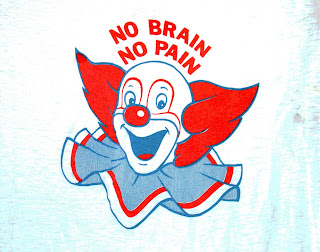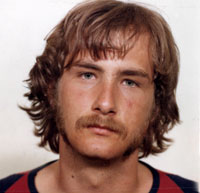Legal Pains

When a friend accidentally burns themselves on a stove-top, their pain is usually very obvious - cursing, gesturing wildly, and even the explicit verbal pronouncement of "I am in pain." It's also very clear from this display that their pain is viewed as a "bad" thing - they want it to stop, they will be more vigilant in the future to prevent it from happening again, and they very likely either want or even expect you to help out in these endeavors. Pain, while being a survival affirming biological phenomena, is (at least in this simple case here) also inherently ethical. We can then imagine that this same friend's nervous system might be manipulated (whether through mutation , injury, or pharmacological manipulation) to prevent them from feeling pain. While we might initially be shocked at such a turn of events, we could be convinced of such a change if our friend stopped responding to usually painful stimuli (such as our villain the stove-top) with the sa...




